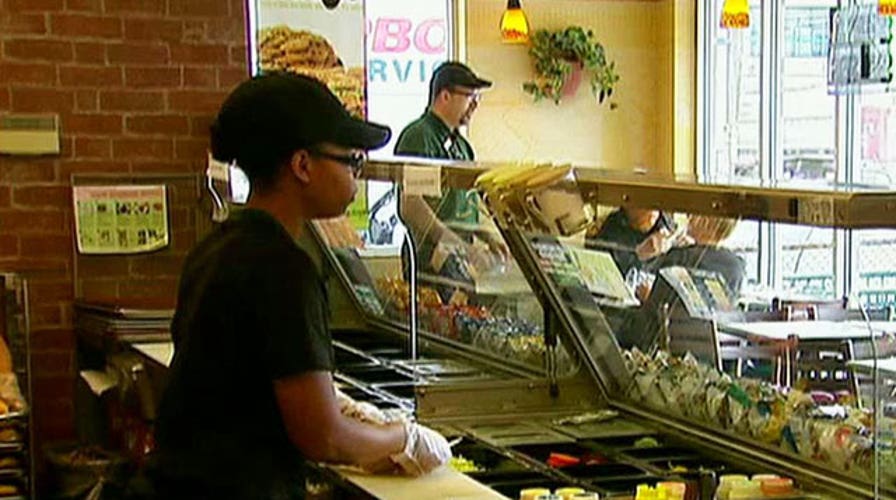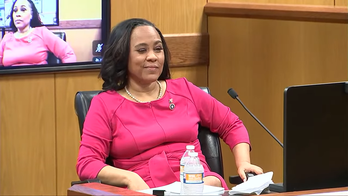Many Seattle workers are about to see their income go way up, after the City Council unanimously passed a $15 minimum wage earlier this month.
But faster than you can get a happy meal at McDonald's, the ordinance is facing a legal challenge.
“I guarantee not everyone will survive,” warned David Jones, who owns a Subway franchise in Seattle. “This discriminatory law will affect some franchisees and they will go out of business.”
The International Franchise Association, representing those concerns, has sued over the wage hike, specifically objecting to the fact the ordinance treats franchises as big businesses and requires them to pay the $15 hourly wage four years earlier than their mom-and-pop competitors.
“This is dividing small business owners,” IFA President and CEO Steve Caldiera said. “It’s the government picking winners and losers, and it’s unfair.”
Seattle has 600 franchise businesses -- many with names lesser known than McDonald's or Burger King -- that employ 19,000 workers.
Chuck Stempler, who has 69 employees at his Alpha Graphics print shop in Seattle, worries his customers will be able to easily go outside the city for better pricing. And most of his competitors are on the small side like him.
“We just want to be treated equally relative to our size,” said Stempler. “I’m not a 500-person company.”
To the elected leaders in the Emerald City, size doesn’t matter. Newly elected socialist council member Kshama Sawant argued at one public hearing that, “In order to be a franchisee, you have to be very, very wealthy.”
Democratic Mayor Ed Murray views the accelerated wage increases as a way to level an unfair playing field which is dominated by locally owned franchises.
“They are part of a larger, national corporate monopoly that is very, very different than individual business owners,” Murray said.
But Kathy Lyons is a franchisee who says she’s not close to being rich. She took out a small business loan of $235,000 using her home mortgage as collateral to launch a BrightStar franchise. She invested her life savings of $200,000 into the home health care company and is now afraid she could lose it all.
“I’m worried about our clients out there being able to provide care for them at the rate we’d have to charge,” Lyons said. “It becomes undoable.”
A well-known Seattle blogger argues some businesses will fail, but that’s okay.
“If some jobs are lost, but we lift tens of thousands of low-wage workers out of poverty, that’s a net plus in the long run,” said David Goldstein, who runs Horsesass.org.
Goldstein’s argument apparently is supported by the International Monetary Fund. The IMF recently issued a statement warning that the U.S. economy would suffer unless it raises the national minimum wage from the current $7.25 an hour.
The International Franchise Association isn’t suing to block the $15 wage in Seattle. Rather, it’s challenging the phase-in period which it argues will put franchisees at a significant disadvantage for several years.
“We need to nip this in the bud,” says Caldiera.
But Goldstein isn’t shedding any tears.
“It may very well be unfair, but unfair regulations are not illegal,” Goldstein said. “The government distinguishes between different types of businesses and different types of industries all the time.”
The fight might not end in Seattle. According to the IFA, 26 cities have been targeted by the Service Employees International Union, which is the main group pushing the $15 minimum wage. The list includes San Francisco, where voters will get a chance to decide in November.





